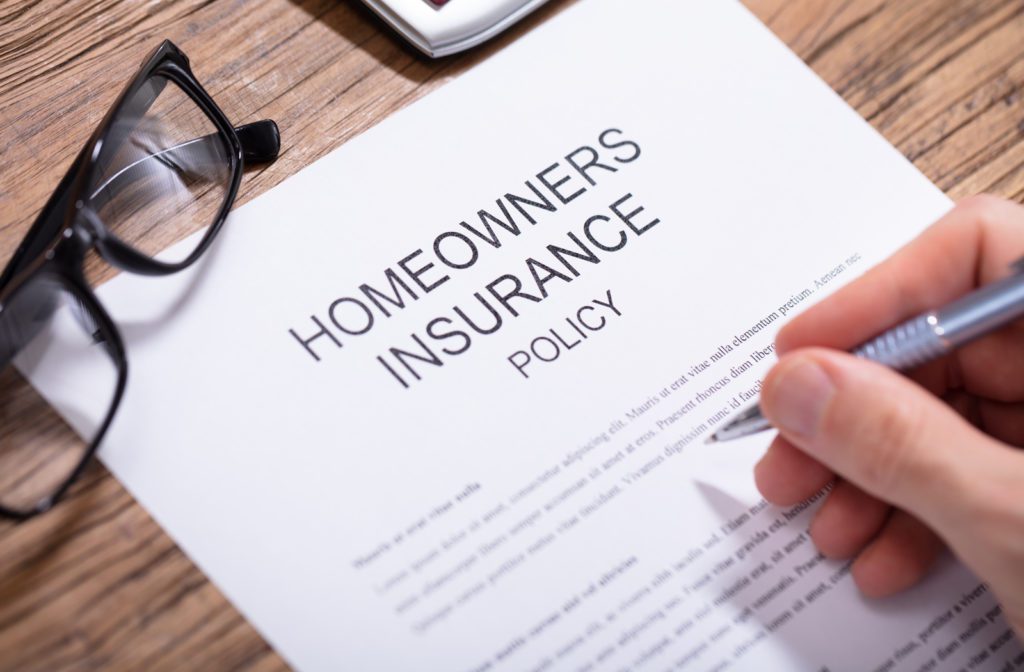Now that we’ve looked at some electrical issues you might see when you’re buying a home, it’s time to talk about insurance—the ultimate “just-in-case” purchase you make when it comes to your health, car, and even home!
Home insurance is absolutely essential for any homeowner, as it can help cover the costs of many incidents that could happen, from theft all the way to property damage. But the ins and outs of insurance are different for virtually every type of plan out there. So, what does this mean if you start to experience electrical problems?
4-Star Electric wants to help you protect your home and prevent as many unnecessary costs as possible. Today, we’re going to dive into home insurance, the type of electrical problems insurance companies look for, and what you could do to make the most of your increase your chances of getting electrical problems covered by insurance.
If you’re worried about a potential electrical problem in your house, be sure to give us a call! Our electricians, equipped with their “Warehouse on Wheels,” have everything your family needs to ensure your electrical work is top-notch. Be 100% satisfied with your home’s electrical today!
Yes, Home Insurance Can Cover Electrical Problems, But…
Coverage depends on various factors that you’ll need to consider before purchasing home insurance.
But just because you have a home insurance plan, it doesn’t mean your plan covers your home for all types of accidents and emergencies. Insurance companies look for many different issues with your home to determine their coverage, including electrical problems.
Type of Wiring
Typically speaking, older homes with older wiring will have a harder time getting insured. If your home hasn’t had any updates to its electrical wiring since the 1950s, 60s, or 70s, then you can likely have aluminum, ungrounded or even knob and tube wiring.
Aluminum Wiring
Now, aluminum wiring in itself isn’t the issue—many homes can operate just fine with aluminum wiring—it’s about how the aluminum wires are insulated and installed throughout your home that may be a cause for concern.
A common problem with older aluminum wiring installations is called “cold creep,” which consistently expands and contracts the wiring throughout the seasons. Over time, it can increase the risk of fires in your home.
Knob & Tube Wiring
Knob and tube wiring is an old installation technique you might find in older homes, sometimes dating back to the 1950s or before.
You can tell if you have knob and tube wiring if you go to your basement and see wiring jutting out of the wood planks, held in place by porcelain “knobs” or “tubes.” This form of wiring is also not grounded, and you could determine this if the home only has 2-prong outlets.
The real danger of knob and tube wiring is that it is often too old to keep up with modern electrical demands. Over time, it can overheat, damage its insulation, and lead to electrical fires.
Placement of Your Electrical Panel
Your home insurance plan will also consider where your electrical panel is in your house.
Why should this matter? Well, it has to do with an insurance term known as “predictable events.” We’ll explain predictable events in more detail in a moment, but here’s an example of how a predictable event can affect your home insurance coverage:
If you live in a flood zone, like near Calgary’s Bow River, flooding is a “predictable event,” and your insurance company may not want to cover you for flooding damages. If your electrical panel is also in a place where flooding can happen, it might not cover electrical problems related to flooding, either.
Your Home’s Amperage
Many older homes only had 60 amp electrical services to meet all their needs. Today, new homes must have 100 amps, as required by the Canadian Electrical Code.
Though you may not be legally obliged to upgrade your amperage if you live in an older home, you’ll definitely have a more challenging time finding insurance with only 60 amp service. We highly recommend upgrading because overusing 60 amps can increase the risk of electrical fires.
Why Aren’t Your Electrical Problems Covered?
Now that we’ve covered some of the electrical issues your insurance company might look for, let’s break down how they justify their coverage.
Insurance companies look at incidents as “predictable” and “unpredictable” events:
- Predictable events are issues your home has a higher risk of experiencing, like living in a flood zone or having a history of pipes freezing in your home.
- Unpredictable events are issues your home may not experience or are out of your control. These events can include windstorm damage, theft, or damage caused by someone else or their property.
When it comes to electrical systems, your insurance company may not want to cover you based on predictable events that may happen, like electrical fires caused by outdated wiring or low amperage.

How Home Electrical Inspections Can Help You Get Home Insurance
If you’re looking to get home insurance, we recommend getting an electrical inspection with our team first.
While inspections can’t guarantee you’ll get home insurance coverage, we can look for opportunities to repair, replace, or upgrade your home’s electrical system and increase your likelihood of finding coverage for potential electrical problems!
To make the most of your electrical system, we recommend joining our Home Protection Plan!
Our Home Protection Plan gives you free electrical inspections as well as priority, 24-hour service (not to mention 10% off any non-emergency job)! Becoming a member is the best way to ensure your home’s electrical systems work correctly and safely, so give us a call today to find out how we can help make your home light up your family’s life.


